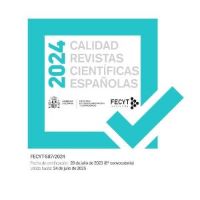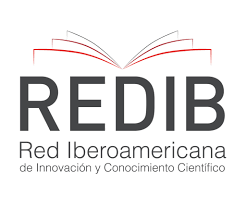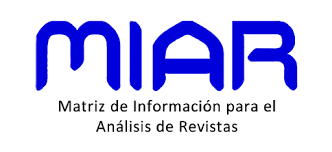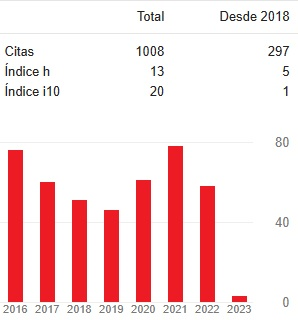Regional systems for the protection of human rights and their feasible contribution in the construction of “a really existing cosmopolitism”
DOI:
https://doi.org/10.51743/cih.429Keywords:
Global Justice, Cosmpolitanism, Human Rights, Conventionality ControlAbstract
This article analyzes the legal-philosophical feasibility of containing the actions of the governments of economically poor States through regional legal mechanisms that favor investigation, extra-state sentencing and comprehensive reparation of the arbitrariness that favors the reproduction of poverty in the country. balloon. The article proposes, based on a documentary analysis of jurisprudence of the European, American and African Human Rights Protection Systems, that regional inter-system relations and dialogues constitute a viable alternative to open a realistic chapter in the debate on the fair distribution of wealth and the end of extreme poverty at the international level.
Downloads
References
Bilbao, L, O, & Lallande, J, P. (2017). Cosmopolitismo, constructivismo y liberalismo institucional: diálogo teórico en torno a la cooperación internacional para el desarrollo.
Araucaria. Revista Iberoamericana de filosofía, política y humanidades, vol. 19, número 37. https://www.redalyc.org/journal/282/28250843015/html/
Böhm, M. (2017). Empresas transnacionales, violaciones de derechos humanos y violencia estructural en américa latina: un enfoque criminológico. Revista Critical Penal y Poder. Vol. 13.
Casal, P. (2000) Ideas para una teoría de la justicia universal con una intención cosmopolita. Isegoría, número 22. https://doi.org/10.3989/isegoria.2000.i22.526 DOI: https://doi.org/10.3989/isegoria.2000.i22.526
Consejo de Seguridad de la ONU, Misiones de mantenimiento de la paz, Naciones Unidas: mantenimiento de la paz, 2019b, Recuperado de https://www.un.org/securitycouncil/es/content/repertoire/peacekeeping-missions
Consejo de seguridad de Naciones Unidas, Situation au Mali: Rapport du Secrétaire general. Misión multidimensional integrada de las Naciones Unidas para la estabilización en Malí, 2019, Recuperado de https://minusma.unmissions.org/sites/default/files/s_2019_262_f.pdf
Derechos Humanos. San José, Costa Rica, Instituto Interamericano de Derechos. (15 abril 2010). Ocho activistas opuestos a Unión Fenosa asesinados en seis meses en Guatemala. Diagonal.
FAO, (2018). El estado mundial de la pesca y la acuicultura, 2018 (SOFIA), Organización de las Naciones Unidas para la Alimentación y la Agricultura. Roma, Italia, pág.39.
Federación Hondureña de Indígenas Lencas. (2011). Proyecto eólico del Cerro de Hula destroza nuestras tierras y afecta nuestras vidas, agua y comunidades. Comunicado de Organizaciones Sociales de Honduras.
Gallagher, K & Porzecanski, R. (2010) The Dragon in the Room: China & The Future of Latin American Industrialization, Redwood City, CA: Stanford University Press, p.139. DOI: https://doi.org/10.1515/9780804775984
González, K. (2017).¡Liberar, liberar al mapuche por luchar! Activismo, derechos Humanos y prisión política mapuche en Chile. Revista e-cadernos CES, Vol. 28.
Hernández, J. & Carrión, J. (2013). Las empresas transnacionales y los derechos humanos. Revista cambio social y cooperación en el siglo XXI, Vol. 2.
Held, D. (2005). Los principios del orden cosmopolita. Anales de la Cátedra Francisco Suárez, Vol. 39. DOI: https://doi.org/10.30827/acfs.v39i0.1030
Kaufmann, D. (2000) Corrupción y reforma institucional: el poder de la evidencia empírica. Revista Perspectivas, vol. 3, número 2.
Klein, F. (2008). Los movimientos de resistencia indígena. El caso Mapuche. Revista Gazeta de Antropología, Vol. 1. http://hdl.handle.net/10481/7072 DOI: https://doi.org/10.30827/Digibug.7072
Lafont, Cristina, (2010). Accountability and global governance: challenging the state-centric conception of human rights, Ethics & Global Politics, vol. 3, número 3. DOI: https://doi.org/10.3402/egp.v3i3.5507
Lafont, Cristina. (2003) Procedural justice? Implications of the Rawls-Habermas debate for discourse ethics. Philosophy & social criticism, vol. 29, número 2. https://doi.org/10.1177/0191453703029002143 DOI: https://doi.org/10.1177/0191453703029002143
Miller, R. (2010). Globalizing justice. The Ethics of Poverty and Power. Oxford University Press. https://doi.org/10.1093/acprof:oso/9780199581986.001.0001 DOI: https://doi.org/10.1093/acprof:oso/9780199581986.001.0001
ONU, Echos de la Monusco. Mission de l’Organisation des Nations Unies pour la Stabilisation en Republique démocratique du Congo, 2019. https://monusco.unmissions.org/sites/default/files/echos_86.pdf
Pacheco De Oliveira, J, Y Cohn, C. (2014). Belo monte e a questão indígena. Brasilia, Brasil. ABA Publicaciones.
Pogge, T. (2012) ¿Estamos violando los derechos humanos de los pobres del mundo? Eidos, número 17. http://www.redalyc.org/articulo.oa?id=85425445001
Radio Vallekas. (2018). El IBEX 35 en guerra contra la vida. Transnacionales españolas y conflictos socioecológicos en América Latina. Entrevista a Miriam Garcia Torres de Ecologistas en acción. Mas Voces. https://masvoces.org/El-IBEX-35-en-guerra-contra-la-vida-Transnacionales-espanolas-y-conflictos
Rawls, J. (2001) El derecho de gentes y una revisión de la idea de razón pública. Barcelona, Paidós. Barcelona.
Ramiro, P. (2011). El segundo desembarco: los impactos de las multinacionales españolas en América Latina, En: Álvarez, S. (coord.) Convivir para perdurar. Conflictos ecosociales y sabidurías ecológicas, Barcelona, Icaria-Antrazyt.
Rodrigo Uprimny, R & Guzmán, D. (2010). En búsqueda de un concepto transformador y participativo para las reparaciones en contextos transicionales. Revista Colombiana de Derecho Internacional, vol. 17, p.241-243.
Rousset, A. (2011) “El concepto de reparación integral en la jurisprudencia de la Corte Interamericana de Derechos Humanos”. Revista Internacional de Derechos Humanos, vol. 1, número 1. p.67-68.
Serrano, J, M. (2004) De la guerra a la democracia: la República Democrática del Congo. Revista de fomento social número 60, págs. 283-290. DOI: https://doi.org/10.32418/rfs.2005.238.2257
Schreiber, Mariana. (2015). ¿El desastre en Mariana fue accidente o crimen? ‘Es precipitado evaluar’, dice ministro”. Revista News BBC Brasil en Brasilia.
Uharte, L, M. (2015). Los impactos múltiples de las empresas eléctricas globales. El caso de Iberdrola en México. Revista Andaluza de ciencias sociales, Vol. 14, p.121-134. https://doi.org/10.12795/anduli.2015.i14.07 DOI: https://doi.org/10.12795/anduli.2015.i14.07
Downloads
Published
How to Cite
Issue
Section
License
The Fundación Universitaria Española publishing house preserves the patrimonial rights (copyright) of published works, and encourages and allows their reuse. The works are published in the electronic edition of the journal under a license “Creative Commons Atribución/Reconocimiento-NoComercial 4.0 Licencia Pública Internacional — CC BY-NC 4.0”, and can be copied, used, disseminated, transmitted and publicly exhibited, provided that : a) the authorship and original source of its publication is cited (journal, publisher and URL of the work); b) are not used for commercial purposes; c) the existence and specifications of this license of use are mentioned.
The author / s partially transfer the property rights (copyright) of this work to the Fundación Universitaria Española (Spain) (NIF: G28433670), for the printed and online editions.
It also declares to have respected the ethical principles of research and to be free from any conflict of interest.
«C.I.H.» encourages the authors and the scientific community to the maximum promotion and dissemination of the works in their final version through:
1) Your list of contacts (emails) and social networks (Facebook, Twitter, LinkedIn ...).
2) Institutional repository of your University and public repositories (Mendeley, Cosis ...).
3) Scientific social networks (ResearchGate, Academia.edu, Kudos ...).
4) Personal or institutional website, blog, etc.
5) Google Scholar, ORCID, ResearchID, ScopusID, Dimensions, PlumX ...
6) Printed copies purchased directly and sent to specialists for reading and subsequent citation if appropriate.
For the nomination of future articles by authors of "C.I.H.", the impact of previous works will be taken into account, so that those with citation higher than the annual average of the journal will be preferred.












2.jpg)
















1.png)
1.png)

1.png)


.png)
.png)

.png)
1.png)
1.png)
